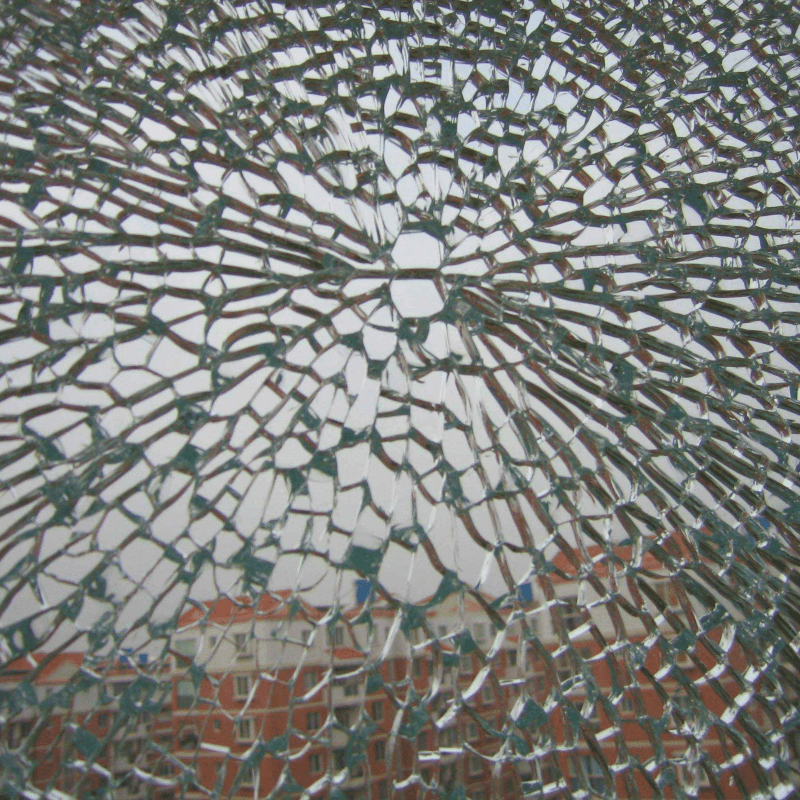Როგორ მზერთან დაფარული სურვილი ბლოკირებს დამარცხვევადი UV რაიანსებს
UV შემცირების სამეცნიერო ფонდი მზერთან დაფარულ სურვილში
Მასში გამოყენებული სპეციალური საფარის მინა თანამედროვე მასალებისა და მეთოდების საშუალებით ხელს უშლის იმ საფრთხის შემცველ ულტრაიისფერ სხივებს გადატარებაში. ამ ეფექტის მისაღებად განსაკუთრებული არაორგანული ნივთიერებების დამატება ხდება, რომლებიც სპეციალურად შექმნილია ულტრაიისფერი სინათლის დასაჭერად და დასაბლოკად. კვლევები აჩვენებს, რომ ასეთი დამუშავება შეიძლება დაახლოებით 99% უზრუნველყოს ზიანის მიყენებული ულტრაიისფერი გამოსხივების აღკვეთა, რაც კიდევ უფრო მეტად ამცირებს ჯანმრთელობის პრობლემებს, როგორიცაა კანის კიბო, რომელიც ზედმეტი მზის გამოცხვევის შედეგად ხდება. პროცესი საკმაოდ მარტივია, საკმარისია მინაზე დავალოთ ძალიან თხელი ფენა იმ მასალისა, რომელიც შთანთქავს ულტრაიისფერ სინათლეს. და აი რა არის ამაში კარგი, მინა ისევ უცვლელად ტოვებს ჩვეულებრივ სინათლეს, ამიტომ ფანჯრები ნათელი და გამჭვირვალე რჩება ხილვადობის დაკარგვის გარეშე.
Შედეგების შედარება უვ-დაცვის საშუალებით სურსების ტიპების შორის
Სხვადასხვა სახის მინა იბლოკავს ულტრაიის სხივებს განსხვავებული ხარისხით, ხოლო მინაგნის მინა საერთოდ უფრო კარგად იცავს, ვიდრე ჩვეულებრივი მინა. ინდუსტრიის კვლევები აჩვენებს, რომ მინა საფარით განსაკუთრებით გამოირჩევა ულტრაიის ზიანის წინააღმდეგ ბრძოლაში და კარგად მუშაობს მკაცრი ამინდის პირობებშიც. სხვაობა მნიშვნელოვანია, რადგან კომპანიები საინდუსტრიო ნორმების დაცვით ატარებენ მკაცრ ტესტებს მინის პროდუქტებზე ულტრაიის დაცვის დონის მიხედვით, რაც შესაძლებლობას იძლევა მყიდველებს აირჩიონ საუკეთესო ვარიანტი თითოეულისთვის. რაც უფრო მეტ ადამიანს ესმის ულტრაიის გამოცდის საფრთხეების შესახებ, მით უფრო მეტი ყურადღება მიექცევა მინის ვარიანტებს, რომლებიც ნამდვილად იცავს, და არა მხოლოდ კარგად გამოიყურება.
Ძირითადი მიზეზები დაფინისური სურათის გამოყენებისთვის UV დაცულობის მიმართ
Ენერგიის ეფექტიურობის გაუმჯობესება
UV დამცავი საფარის მქონე აზირი საშენ მასალებს გაცილებით უფრო ენერგოეფექტურს ხდის, რადგან იგი აირეკლებს მზის სითბოს და ხელს უშლის ზიანის მიმდინარეობას ულტრაიისფერი სხივებისგან. რას ნიშნავს ეს? გათბობისა და გაგრილების დაბალ ხარჯებს ამინდის ცვლილებისას. შიდა სივრცეები ინარჩუნებს კომფორტულ ტემპერატურას გაუმჯობესებული ჰაერის გაცვლის სისტემის გამოყენების გარეშე. ზოგი კვლევა აჩვენებს, რომ ასეთი სახის აზირის დაყენება შენობებს უზრუნველყოფს მწვანე სერტიფიკაციის მიღებას, რაც მხოლოდ პლანეტისთვის არ არის კარგი, არამედ ასევე ამაღლებს ქონების ღირებულებას ბინების ბაზარზე.
Მебლის შენახვა UV ფილტრირების გამოყენებით
Ულტრაიისფერი სხივების დაცული საფარის მქონე აზირი დახმარებას ახდენს ავეჯის გარკვეული ხანით უკეთ შენარჩუნებაში, ვინაიდან იგი ხელს უშლის ზიანის მიყენებას იმ ზიანის მიმდინარეობას, რომელიც ულტრაიისფერი სხივებისგან ხდება ფერების გასაფეთქებასა და მასალების დაშლისას დროთა განმავლობაში. ზოგი კვლევა მიუთითებს იმაზე, რომ სახლებში ფანჯრების დაყენებისას ულტრაიისფერი ფილტრებით, მათი დივანები, მაგიდები და სხვა ავეჯი ხანგრძლივობით დაახლოებით 25 პროცენტით მეტად გრძელდება, ვიდრე სახლებში ასეთი დაცულობის გარეშე. ეს კი ნიშნავს იმას, რომ იშვიათად მოხდება მაღაზიაში საყიდლების გაკეთება ახალი ნივთებისთვის და უკეთ შენარჩუნდება ავეჯის მდგომარეობა. მთავარი წელთა განმავლობაში ესთეტიკა. შენაცვლებზე დაზოგილი თანხა საკმარისად სასიამოვნოდ აკუმულირდება.
Გამოსახულების შემცირება გამართლებული კომფორტისთვის
Საფასურის მქონე ანუ საფასურის გარეშე მზის სხივების შემსუბუქებაში კარგად მუშაობს მზის განათების ასამწყობად, რაც სივრცეებს უფრო მომხმარებელთა დასახლების ან მუშაობისთვის ხდის კომფორტულს. ნაკლები ბრმავება სამუშაო გარემოში უფრო კარგ კონცენტრაციას უზრუნველყოფს, რადგან ნათელი ასახვა არ ახებს ყურადღებას ამოცანებიდან. იმ ადამიანებმა, რომლებმაც ასეთი საფასურის მქონე ფანჯრები დააყენეს, ხშირად ახსენებენ, რომ თავის ტკივილი უფრო იშვიათად აწუხებთ და მათი თვალები ეკრანების მუდმივი ყურადღების შემდეგ ნაკლებად დაიბრუხება. ზოგიერთი კი ამბობს, რომ ისინი უბრალოდ უფრო ბედნიერად გრძნობენ თავს იმ სივრცეებში, სადაც ნათელი უკვე არ არის ასე მკაცრი.
UV-მასალად მაღალი სურათის ტიპები
Low-E დაფიქრული სივრცეები თერმალური კონტროლისთვის
Დაბალი გამოყოფის ან დაბალი E საფარი საშუალებას გვაძლევს შევინარჩუნოთ შენობის კომფორტული ტემპერატურა გასახურების შიდა სივრცეში და აჩერებს ზიანის მომტან UV სხივებს. ამ საფრის მუშაობის პრინციპი ქმნის სახის იზოლაციის ფენას, რომელიც კარგად მუშაობს სხადაობის ამინდის პირობებში. ეს ნიშნავს გათბობის დაბალ ხარჯებს ცივ პერიოდში და ნაკლებ საჭიროებას კონდიციონერის გამოყენებაში, როდესაც გარეთ ცხელია. ზოგიერთი კვლევის მიხედვით, ადამიანები, რომლებიც აყენებენ ფანჯრებს დაბალი E მინით, შეიძლება წელზე დაზოგონ დაახლოებით 500 დოლარი საკომუნალო გადასახადებში, მიუხედავად იმისა, რომ დაზოგვა დამოკიდებულია მათ საცხოვრებელ ადგილზე და შენობის ასაკზე. იმიტომ, რომ ისინი უძლებენ როგორც სითბოს შენარჩუნებას, ასევე დაცვას მზის ზიანისაგან, დაბალი E საფარი სახალისოა იმ ადამიანების შორის, ვინც უნდა შეამცირონ ენერგოხარჯი, მიუხედავად იმისა, არიან თუ არა სახლის მფლობელები ან ბიზნესის წარმომადგენლები.
Ჰიდროგლასის ნანოტექნოლოგიის აპლიკაციები
Სითხის მსგავსი მინის საფარი არის ზოგადად მაღალი ტექნოლოგიის მასალა, რომელიც ზედაპირებზე ანათებენ მათი უვ ზიანის მიმართ მდგრადობის გასაუმჯობესებლად და სიცოცხლის ხანგრძლივობის გასაზრდელად. რა მოხდება არის ის, რომ ეს საფარი ამატებს მიკროსკოპული მინის ნაწილაკების აბსოლუტურად თხელ ფენას ნებისმიერ ზედაპირზე, სადაც ის გამოიყენება. ჩვენ ვხედავთ, რომ ამ მასალის გამოყენება ყველგან ხდება - არა მხოლოდ ჩვეულებრივ ფანჯრებზე, არამედ საინჟინრო მინის კარებზე და თუმცა იმ გამოხატული ტექსტური აბაზანების შემონაკლულობებზეც, რომლებიც ხალხი სახლის სანაო მოწყობილობებში აყენებს. ზოგიერთი კვლევა აჩვენებს, რომ როდესაც მინა დამუშავდება ამ ნანო-ტექნოლოგიური მასალით, ის იმდენად გრძელ ვადიანია, ვიდრე დაუმუშავებელ მინაზე დაახლოებით 15-20 პროცენტით. ეს ნიშნავს იმას, რომ დროთა განმავლობაში იშვიათად მოხდება მინების შეცვლა და შეკეთებაზე დახმარება ფულის დაზოგვაში. მშენებლებისა და სახლის მფლობელებისთვის, რომლებიც სივრცეების გაუმჯობესებას ცდილობენ, ეს საფარი სპეციალურ სარგებელს შეუტანს. ის შენარჩუნებს სახლის ესთეტიკურ გარეგნობას და ასევე უფრო მაღალი წინააღმდეგობა გამოავლინებს ამინდის ზიანის და დახმარებით, რაც მას საკმარისად ფასეულ ალტერნატივად აქცევს დღევანდელ მშენებლობის ბაზარზე.
Დაჭერილი პიროლიტის ზედაპირის მუშავება
Იმ შემთხვევაში თუ მაღალი ტემპერატურის გამოყენებით მოხდება მათი დატანა ამ დროს მიღებული პიროლიზური საფარი ანიჭებს მის ზედაპირს საოცარ მდგრადობას ყოველდღიური გამოყენების დროს. ეს საფარი გახდის მის ზედაპირს ბევრად უფრო მდგრადს ხაზების გამოწვეული დაზიანების მიმართ და იცავს მას ზიანის მიყენებისგან დროთა განმავლობაში შესაძლო გამდინარე ფერების უარყოფითი ზემოქმედებისგან. სამყაროში ჩატარებულმა ტესტებმა აჩვენა, რომ ასეთი დამუშავების მქონე მინები ხშირად ინარჩუნებს თავის თავგადასავლებს 20 წელზე მეტი ხანის განმავლობაში, რაც საუკეთესო ამონახსნია სიახლეები ნებისმიერისთვის, ვინც მართავს შენობებს ან იმუშავებს სტრუქტურების დიზაინზე. განსაკუთრებით გამძლეობის გარდა, ეს საფარი ასევე შეამცირებს ნაგვს, რადგან ის ამცირებს მინის გამოცვლის სიხშირეს. არქიტექტორები და მშენებლები უფრო ხშირად ირჩევენ პიროლიზურ დამუშავებას, რადგან ის კარგად ერგება მწვანე შენობების სტანდარტებს და ასევე უზრუნველყოფს სიმაგრეს გარე გამოყენებისთვის, სადაც მინა არის მუდმივად გახლეჩილი ამინდისა და გარემოს ზემოქმედების მიმართ.
Არქიტექტური და ავტომობილური გამოყენება
UV-მდგრადობის ამოხსნები სურათების კარი და ფასადებისთვის
Თანამედროვე არქიტექტურა უფრო მეტად ეყრდნობა ულტრაიისფერის წინა მიმართულების გამძლე საყვანელს, რათა აშენების ესთეტიკა გააუმჯობესოს და შიდა სივრცეები დაიცვას მზის ზიანს მიადგილებელი სხივებისგან. კვლევები აჩვენებს, რომ ამ სპეციალური გამჭვირვალე საყვანელებით შესაძლოა გაგრილების ხარჯები დამცირდეს დაახლოებით 30%-ით ბიზნესის ბოლო ანგარიშების მიხედვით. როდესაც აშენებები ამ ტიპის საყვანელს აყენებენ, მათ ხშირად აქვთ დაბალი ელექტროენერგიის ანგარიშები თვეში თვე, რაც ეხმარებათ მათ მოხვდნენ მწვანე აშენების სტანდარტებში და შეამცირონ მათი საერთო ნახშირბადის გამონაბოლქვები. ბევრი არქიტექტორი ახლა ულტრაიისფერის წინა მიმართულების გამძლე საყვანელს ასპეციფიკაციებს სავაჭრო ფასადებისა და შესასვლელი კარებისთვის როგორც სტანდარტული პრაქტიკის ნაწილი. ბაზარმა უპასუხა ფართო დიაპაზონით ვარიანტებისა გამუქებული საყვანელიდან ბუდეში გამჭვირვალე ტექნოლოგიების ჩათვლით, რაც გააადვილებს ამ სარგებლის შესავალს როგორც ახალში აშენებულ ნაგებობებში, ასევე ძველ შენობებში, რომლებიც მნიშვნელოვან რეკონსტრუქციებს გადის.
Ავტომობილის საწინააღმდეგო ჩანაცვლების ინოვაციები
Მოტორების სამყაროში ბოლო დროს მნიშვნული ცვლილებები მოხდა მანქანის დასაცავი შუშების მიმართულებით. მაგალითად, უვ წინაღობის მქონე შედუღებული მასალის გამოყენება. ეს მასალა ამცირებს არეკვლას და აირეკლებს ზიანს მიმართულ უვ სხივებს, რაც გულისხმობს მანქანის შიგნით ყველასთვის უფრო მაღალ დაცულობას და მანქანის მძღოლისთვის საერთო სიამოვნეს. ინდუსტრიის ანგარიშები აჩვენებს, რომ უმეტესი მანქანის დასაცავი შუშების მწარმოებლები უკვე ამ უვ ფილტრებს სტანდარტულ დამატებით უზრუნველყოფენ, არა როგორც არჩევანის საშუალებას. ამ გაუმჯობესებების მხოლოდ მანქანის გარეგნული სახის გაუმჯობესების მიღმა, სინამდვილეში ამაღლებს მანქანის მახასიათებლებს და უზრუნველყოფს მძღოლის სიკეთეს. აშკარად დაფიქსირდა მიდრეკილება უფრო უსაფრთხო და გონივრული მასალების გამოყენებისკენ. ამას ავტომობილების კომპანიებიც ხვდებიან, ვინაიდან მომხმარებლები უფრო მეტად უპირატესობას აძლევენ უსაფრთხოებას, განსაკუთრებით იმ შემთხვევაში თუ სამაგიეროდ საოჯახო გროვა დიდ ხანს ატარებს გზაზე.
Ტექსტურული სურათის ამოხსნები დაჭერის გარემოებისთვის
Ბოჭკოვანი მინისგან დამზადებული საშრობის გამოყოფა ბოლო დროს საკმაოდ პოპულარული გახდა, რადგან ის ერთდროულად ასრულებს ორ მნიშვნელოვან ფუნქციას: უზრუნველყოფს ადამიანების კონფიდენციალურობას და ამცირებს ზიანის მიყენებას ულტრაიისფერი სხივებისგან. ტექსტურა ასევე უზრუნველყოფს უსაფრთხოების დამატებით დონეს, რადგან ის ამცირებს საფრთხეს მოცივნის დროს სისქეში. კვლევებმა აჩვენა, რომ მინა, რომელიც ფილტრავს ულტრაიისფერ სხივებს, en ანელებს სახიფათო სოკოების და ნაყოფის ზრდას, რაც ნიშნავს იმას, რომ სახლის მფლობელებს უფრო იშვიათად უწევთ სისუფთავის მოვლა. უფრო მეტი არქიტექტორი იწყებს ამ სახის მინის გამოყენებას პროექტებში, ვინაიდან ის მართალიან მუშაობს და კარგად გამოიყურება. სანაოშების დიზაინერებს უყვართ ის, რომ ის აერთიანებს პრაქტიკულ სარგებელს და სტილისტურ გარეგნობას, რაც უზრუნველყოფს სანაოშის ლამაზ გამოყურებას, სიჯანსაღესა და უსაფრთხოებას.
SYP ენერგიის შენახვის საღამო UV დაცვისთვის
CVD სამაღალო ქმედების ტექნოლოგია
Ქიმიური აორთქლების ანუ CVD ტექნოლოგიამ მნიშვნულად შეცვალა საქმე, როდესაც იონიზაციური გამოსხივების შემცირება მიმართულებით მიდის მინის ზედაპირების გამოყენებით. ამ მეთოდის განსაკუთრებულობა იმაში მდგომარეობს, რომ ის ქმნის მაღალი ხარისხის საფარს, რომელიც ავლენს უმეტესობას იმ საფრთხის შემცველი ულტრაიისფერი სხივებისაგან, რომლებიც დროთა განმავლობაში ზიანს აყენებს თვალებსა და კანს. კვლევები ადასტურებს იმას, რასაც წარმოებელი წლებია ამბობს CVD საფარის ენერგოეფექტურობის გაუმჯობესების შესახებაც. ასეთი დამუშავებით მიღებული შენობები იგივე ნათელი ხდება გამჭვირვალობით, მაგრამ არასასურველი ინფრაწითელი გამოსხივების დიდ ნაწილს უკან ატურებს, რაც შიდა სივრცეში სითბოს დაგროვების შემცირებას ნიშნავს. CVD-ს სილამაზე მისი მრავალფეროვნობაშია სხვადასხვა ბაზარზე. სახლის მფლობელები მისი გამოყენებას უპირატესობას ანიჭებენ ფანჯრებში, სადაც უკეთესი იზოლაცია სასურველია, ხოლო დიდი კომერციული საკუთრებები კი აფასებენ საფარის მორგებას სპეციფიკური მოთხოვნების შესაბამისად გარეგნობის დაურღვევლად.
Მანქანის წონის შემცირება და ენერგიის შენახვა
Როდესაც მანქანები იწყებენ მუშაობას იმ მინით, რომელიც ავლენს ულტრაიის სხივებს, მაშინ მნიშვნელოვნად იცვლება მანქანის შუქის და საწვავის ხარჯვის ეფექტურობა. კვლევები აჩვენებს, რომ უფრო მსუბუქი მანქანები ნამდვილად ხარჯავენ ნაკლებ საწვავს, რაც ნიშნავს ნაკლებ გამონაბოლქვს ატმოსფეროში. მანქანების კომპანიები იწყებენ ამ ტექნოლოგიის მიღებას მათი პროდუქტის სახეობებში, რადგან ეს ეხმარება მათ გადაუხადონ გარემოს დაცვის მიზნებს და აკმაყოფილებს მომხმარებლებს, რომლებიც უფრო მწვანე ვარიანტებს სვამენ მოთხოვნით გარეშე წარმადობის კლებისა. ჩანს, რომ ინდუსტრია მიემართება ამ ამონახსნისკენ, რადგან მომხმარებლები და მასშტაბური მორგება მოითხოვს სუფთა ტრანსპორტის ალტერნატივებს.
Ორი სეზონის თერმალური მართვა
SYP-ის ენერგიის დამზოგავი გამ transparent საშუალებას აძლევს უკეთ მართოთ სითბო, უფრო ხშირად გამოყენებული ალტერნატივებთან შედარებით, რაც სასწორად შეესაბამება შენობებსა და სატრანსპორტო საშუალებებს, რომლებიც ყველა სახის ამინდთან აგრძელებენ წელიწადის განმავლობაში. ზოგი კვლევა აჩვენებს, რომ ადგილებში, სადაც გამოიყენება ამ ორ სეზონურ სალის გამოყენებით, შესაძლოა დაზოგონ დაახლოებით 30 პროცენტი ენერგიის ხარჯებში ჩვეულებრივი გამის მონტაჟთან შედარებით. იმის გამო, რომ ის კარგად მუშაობს როგორც ცივ ზამთარში, ასევე ცხელ ზაფხულში, ასეთი სტრუქტურები გრძელვადიანად უფრო ღირებულებას წარმოადგენს. ადამიანებისთვის, რომლებიც იქ ცხოვრობენ ან მუშაობენ, შიდა სივრცეში გაცილებით უკეთ კომფორტის დონე განიცდის, ხოლო გათბობისა და გაგრილების ხარჯები მნიშვნელოვნად შემცირდება.

Ავანსებული დაფარვის ტექნოლოგიები ფოკუსში
Ინფრაწითელი ანართების მექანიზმები
Ინფრაწითელი გამოსხივების ასახვის შესაძლებლობის მქონე მინის სპეციალური საფარი მნიშვნელოვან როლს ასრულებს იმ სითბოს რაოდენობის კონტროლში, რომელიც სარკმლების მეშვეობით შედის შიდა სივრცეში, რაც ერთად მუშაობს UV დამუშავებული მინის მიერ მიცემულ დაცვასთან. ზედაპირულად რომ ვთქვათ, ასეთი საფრები ასახავს და ავლენს ინფრაწითელ გამოსხივებას, რითაც შიდა სივრცეები წელიწადის განმავლობაში დახვეწილ ტემპერატურაზე ინარჩუნებს. აშენები გადუხდებიან ცხელი ამინდის დროს, ვინაიდან ზედმეტი სითბო არ შედის ისე, რომ საჰაერო გამაგრილებელი სისტემები იკიდებიან ნაკლებად. მეტი და მეტი ადამიანი იწყებს ამ ტექნოლოგიის გამოყენებას სხვადასხვა ტიპის შენობებში, დიდებშიც და პატარებშიც, ძირითადად იმიტომ, რომ ის ენერგობილინგების დაზოგვაში ეხმარება, ასევე მწვანე შენობების სტანდარტების შესასრულებლადაც. არქიტექტორებს უყვართ ინფრაწითელი სხივების ასახვის მქონე მინის გამოყენება სხვადასხვა პროექტში, დაწყებული მარტივი ნივთებიდან, როგორიცაა სააბაზანო კაბინები, დამთავრებული კომერციული შენობების სასურსათო სახლებით, სადაც ესთეტიკა ფუნქციონალურობასთან ერთად მნიშვნელოვანია.
Solar Heat Gain Coefficient Optimization
Მზის სითბოს შთანთქმის კოეფიციენტის (SHGC) სწორად გაანგარიშება უზრუნველყოფს საშენ მასალების თერმულ მახასიათებლებს, განსაკუთრებით თუ საუბარი იმაზე მიდის, თუ როგორ უნდა გახდეს შენობები ენერგოეფექტური. კვლევები აჩვენებს, რომ SHGC-ს რიცხვის შემცირებით ენერგოეფექტურობა იზრდება, რაც სასარგებლო გადასახადებზე დაზოგვას ნიშნავს დროის განმავლობაში. თანამედროვე პროექტების შესახებ მუშაობისას არქიტექტორები იპოვიან ახალ გზებს SHGC-ს გაუმჯობესების ინტეგრირების შესახებ, რათა შენობები დღის განმავლობაში უკეთ მართოს ენერგიის მოხმარებას. როდესაც SHGC ოპტიმალურად არის დარეგულირებული, მზის სინათლიდან მიღებული სითბო ნაკლებად გადის მინაზე. ეს კი ცივი კლიმატის მქონე პერიოდებში ჰაერის გაგრილების საშუალებებზე დამოკიდებულებას ამცირებს. ასეთი მდგომარეობა ვლინდება სამრეწველო შენობებში, რომლებიც მდებარეობენ სამხრეთით მდებარე რეგიონებში, სადაც გაგრილების ხარჯები ადრე ასტრონომიულ მაჩვენებლებს აღწევდა. ბოლო დროს მინის კარების სისტემების განვითარებამ სივრცეებში კარგად დაბალანსებული ტემპერატურის შენარჩუნება შეუძლია ენერგიის დაზოგვით. ამ შენობებში მუშაობის ან ცხოვრების პიროვნებები შედეგს თითქმის დაუყოვნებლივ გრძნობენ.
Გრძელი დროის დაფარვის გამჭვირვალობის ფაქტორები
Მიუღებელია საფარის მიღება იმის ცოდნის გარეშე, თუ რა უზრუნველყოფს მის ხანგრძლივობას დროის გასვლისთან ერთად და როგორ მარტივი იქნება მისი შენარჩუნება მომდევნო პერიოდში. თანამედროვე საფარები შექმნილია იმ პირობების გასაძლებლად, როგორიცაა განსაკუთრებით მაღალი ტემპერატურა, ყინვა და ყოველდღიური ხაზები, ასე რომ ისინი ხანგრძლივი ხდებიან. კვლევები აჩვენებს, რომ იმ შემთხვევაში, თუ წარმოების დროს დამამზადებლები დამატებით სიფრთხილეს ამჟღავნებენ, საფარები ხანგრძლივად გრძელდებიან, რაც ნიშნავს იმას, რომ შემდგომში სარემონტო სამუშაოები ნაკლებად მოხდება და გამოდის ფულის დაზოგვა. კომერციული საკუთრების მენეჯერებისთვის, რომლებიც მუშაობენ ავტოსარემონტო მაღაზიებთან, განსაკუთრებით მნიშვნელოვანია ამ სიმაგრის მახასიათებლების გათვალისწინება მისი მიღებისას. მნიშვნელოვანია მისი მახასიათებლების გათვალისწინება, რომელიც აუცილებელია საფარის მისაღებად, რადგან მნიშვნელოვანია მისი მდგრადობა ამინდის ცვლილებებისა და ყოველდღიური გამოყენების პირობებში.
